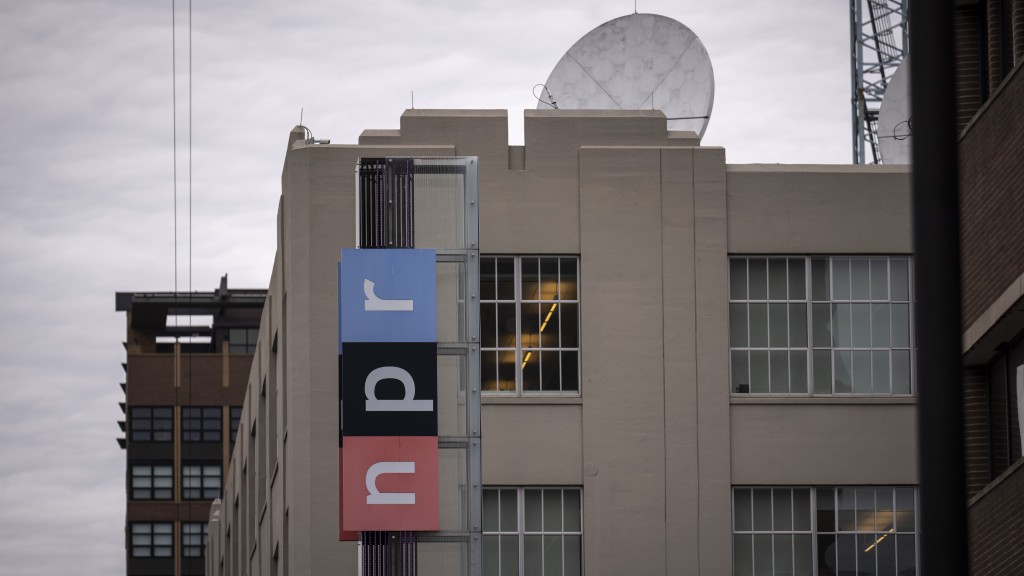Elon Musk’s Twitter slapped a new label on the account of American public broadcaster NPR that says it is “US state-affiliated media.” Other Twitter accounts with the state-affiliated media label include Russia Today (RT), Russia’s Sputnik and China’s China Xinhua News.
In a statement to Variety, NPR president and CEO John Lansing said, “We were disturbed to see last night that Twitter has labeled NPR as ‘state-affiliated media,’ a description that, per Twitter’s own guidelines, does not apply to NPR. NPR and our member stations are supported by millions of listeners who depend on us for the independent, fact-based journalism we provide. NPR stands for freedom of speech and holding the powerful accountable. It is unacceptable for Twitter to label us this way. A vigorous, vibrant free press is essential to the health of our democracy.”
The “state-affiliated media” label now shows up on all of the tweets from NPR’s primary Twitter handle.
Musk, who closed the deal to buy Twitter in October 2022, on Wednesday tweeted a portion of the social network’s policy regarding state-affiliated media in reply to a user who gave Musk a shout-out for the update to NPR’s account. “Seems accurate,” Musk wrote.
According to NPR, on average, less than 1% of its annual operating budget comes in the form of grants from the Corporation for Public Broadcasting and federal agencies and departments.
Twitter’s current policy on this issue reads in part, “State-affiliated media is defined as outlets where the state exercises control over editorial content through financial resources, direct or indirect political pressures, and/or control over production and distribution. Accounts belonging to state-affiliated media entities, their editors-in-chief, and/or their prominent staff may be labeled.” The policy notes that “State-financed media organizations with editorial independence, like the BBC in the UK for example, are not defined as state-affiliated media for the purposes of this policy.”
The change to NPR’s account comes after Twitter on Sunday removed the verification badge for the New York Times. That came following an exchange on Twitter, in which Musk, replying to someone noting that the publication said it would not pay for verification, say, “Oh ok, we’ll take it off then.” Later that day, Musk tweeted, “NY Times is being incredible hypocritical here, as they are super aggressive about forcing everyone to pay their subscription.”
Meanwhile, earlier this week, without advance notice Twitter’s web interface replaced the famous Twitter bird logo above the home button the an image of a Shiba Inu — aka the “Doge,” part of the logo of the Dogecoin open-source cryptocurrency, which was created as a joke in 2013. Musk, a noted fan of Dogecoin and related memes, was named in lawsuit filed last year accusing him of racketeering over his promotion of the cryptocurrency. Last Friday, his lawyers filed a motion to dismiss the claim, arguing the plaintiffs failed to show how Musk’s promotion of Dogecoin represented fraud. “[T]here is nothing unlawful about tweeting words of support for, or funny pictures about, a legitimate cryptocurrency,” the Musk legal filing said.
Musk has been trying to drive up subscriptions to Twitter Blue, which the company has said will become the only way for users to receive the blue check-mark badge. Twitter said it would start removing blue check-marks from legacy verified accounts on April 1, but that doesn’t appear to have happened in any large-scale way at this point. On Sunday, Twitter changed the language in the description of verified users to read, “This account is verified because it’s subscribed to Twitter Blue or is a legacy verified account” — so that now you can’t tell who is paying for a blue check-mark and who isn’t.
NPR last month laid off 10% of its staffers, at least 100 employees, after a revenue drop attributed to a slowdown in advertising and sponsorship revenue particularly for its lineup of podcasts. As part of the cuts, NPR canceled four podcasts: “Invisibilia,” “Louder Than a Riot,” “Rough Translation” and “Everyone & Their Mom,” a spinoff of the “Wait Wait Don’t Tell Me” game show.

Read More About:
Source: Read Full Article

